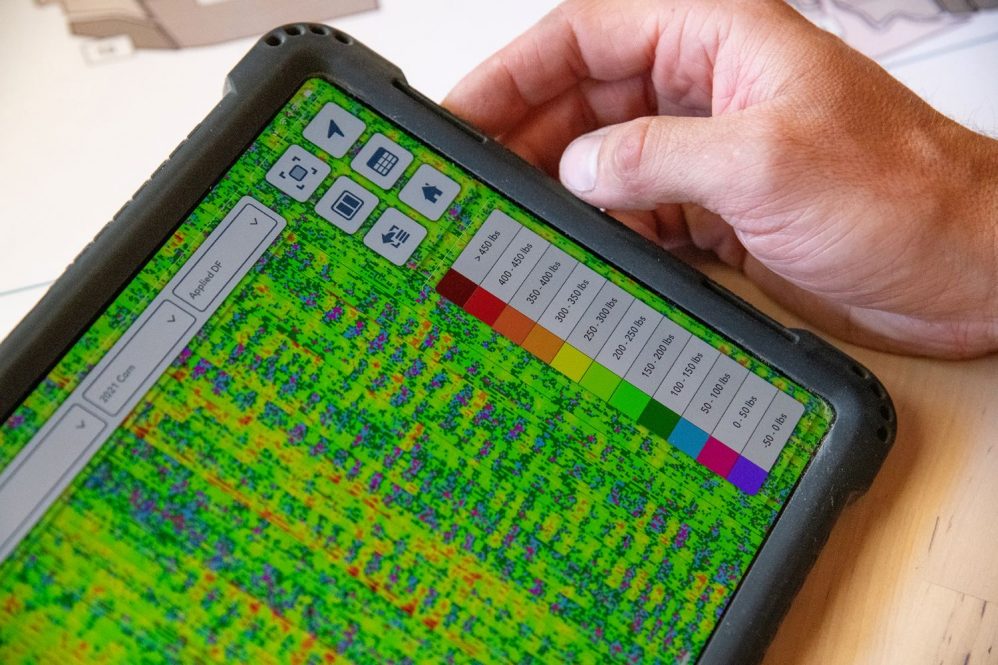Students applying to the master’s program in agricultural and resource economics (ARE) in UConn’s College of Agriculture, Health and Natural Resources who are interested in data science can also apply for a USDA National Needs Fellowship.
The USDA National Needs Fellowship in Data Science was established last year through a grant to the department to help address an unmet need for agricultural and resource economists with an expertise in data science.
“The USDA feels there is a dire need for this type of skill across the U.S.,” says Farhed Shah, associate professor and director of graduate studies in ARE.
Anyone applying for the master’s may indicate on their application that they would like to be considered for the USDA fellowship.
“It’s a great opportunity to recruit top students in a critical area of national need,” Rigoberto Lopez, professor and member of the ARE graduate committee, says.
The funding supports students for both years of the master’s program providing them with a tuition waver and a stipend of $18,500 per year. Applications are due January 15, 2024. The funding is limited to U.S. citizens or nationals.
UConn will recruit seven students in total over the course of three years.
UConn’s program is the only agricultural economics program in the country currently offering a specialization in data science.
“Students have access to a unique program that will train them for the future in a national priority area,” Lopez says.
ARE faculty have been involved in the development of data science programs at UConn since the beginning, with faculty, such as Nathan Fiala and Charles Towe, serving on the founding committee and teaching in the program.
“We have always been an integral part of data science at the University of Connecticut since day one,” Lopez says.
Shah says they evaluate applicants based on prior experience to data science or related fields such as math, statistics, and computer science, GRE math scores, and demonstrated motivation to pursue a career in data science.
In addition to the core courses all master’s students take, fellows will also take data science electives within and outside of their home department. They will also complete a research-based capstone.
“Our other master’s students have the option of just doing a coursework-oriented master’s or a research-oriented master’s,” Shah says. “These folks don’t have that option. They will have to do some research in which they will be expected to apply the tools they’ve learned as part of the program.”
This program will prepare students for data science careers in the public or private sector, or a PhD program.
The Department received another USDA National Needs award for watershed management in 2011. This program supported five students who have since gone on to work in high-level positions at organizations such as the Trust for Public Land and the Massachusetts Department of Agricultural Resources.
UConn’s program currently supports two USDA fellows: Cam McClure ‘23 ‘25 (CAHNR) and Lindsey Orr ‘23 ‘25 (CAHNR).
McClure had been applying to data science master’s programs, but with the USDA fellowship, the ARE program was the perfect fit.
“It aligned incredibly well with what I wanted to do,” McClure says. “I had an interest in both data science and the environmental economics side of it. So, this was a fantastic way to align two interests that I had that I didn’t fully realize I could do together.”
As part of their fellowships, Orr and McClure are working with UConn’s Zwick Center for Food and Policy Research on various research projects.
McClure has been working on waste and trash initiatives in Connecticut and is starting a new project looking at estuary land along the Long Island Sound.
Orr is also working on waste research, investigating how giving grants to promote recycling could impact rates in communities.
“I did originally get into this major because I was interested in environmental economics and sustainability,” Orr says. “So, there’s a lot of different areas that appealed to me from food policy to energy to environmental preservation.”
Students who are part of the fellowship have the opportunity to take courses outside the department in their areas of interest, such as the fundamentals of data science and research design and methods.
“I thought it was really cool to develop these skills to use later on, but also for me to be someone who was not an engineering major and to get to sit in class and learn about managing databases,” Orr says. “I feel like that’s a really unique opportunity. I feel like it’s going to allow me to get a lot closer to what I want to do and learn some really interesting things.”
This work relates to CAHNR’s Strategic Vision area focused on Ensuring a Vibrant and Sustainable Agricultural Industry and Food Supply.
Follow UConn CAHNR on social media



